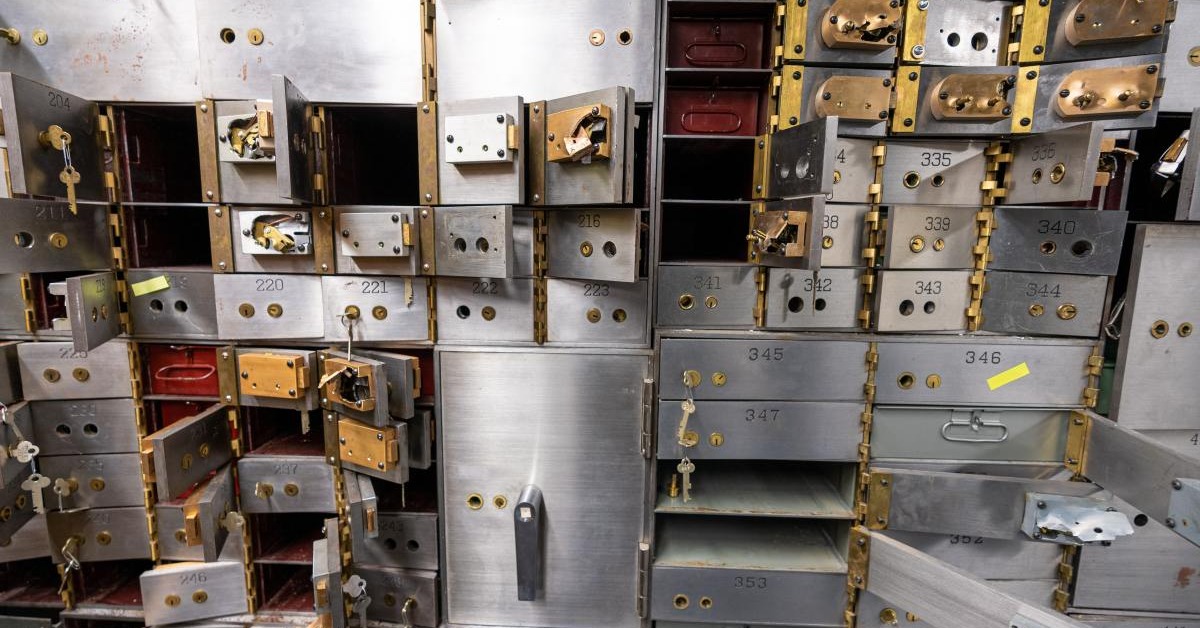
How Much Money Does a Cyber Security Analyst Make?
Cyber security analysts earn around $105,000 per year on average. [...]

The concept of the computer has been around for centuries. The word “computer” was first used in 1613 in the book The Yong Mans Gleanings by Richard Braithwaite to describe a human who performed calculations or computations. Early attempts at a computer span the ages from the abacus of ancient Babylonia to Charles Babbage’s Difference Engine.
Computer science as a discipline can be traced to George Forsythe, a mathematician and founder of Stanford University’s Computer Science department, who coined the term in his paper “Engineering Students Must Learn both Computing and Mathematics.” As the power of computers has grown, so has the ability of computer science to develop a range of powerful predictive analytic tools, artificial intelligence (AI), and robotics that are now being used across a broad spectrum of industries.
As computer science has evolved, so has the need for qualified and talented computer scientists. The growth in the number and specialty of computer scientists has created a vast network of opportunities in the field. In fact, computer science is one of the most in-demand jobs of any occupation. But with technology rapidly advancing and changing, will computer science be in demand in 2030?
According to the US Bureau of Labor Statistics (BLS), there are over 33,000 computer scientists in the United States, and that number will continue to grow. About 3,200 openings for computer and information research scientists are projected each year, on average, over the next decade. And that doesn’t include the many specialties within the data science industry.
Positions like computer systems analyst, web developer, database administrator, and cybersecurity manager often fall under the computer science umbrella. They are expected to maintain growth through the coming years. It seems clear that computer science will not become obsolete in the next ten years. However, it will evolve as certain specialties advance, dictated by market forces and new developments in technology.
| University and Program Name | Learn More |
|
The University of Tennessee:
Online Master of Computer Science
|
|
|
Merrimack College:
Master of Science in Computer Science
|
|
|
Stevens Institute of Technology:
Master of Science in Computer Science
|
One of the biggest threats to the demand for human skills across computer science professions is system automation enabled by advanced AI technologies. AI automation has infiltrated many of the most profitable industries, displacing the work previously performed by computer scientists. AI automation in the creation of software applications, AI analytics in content marketing, and AI online systems in biotechnology are prime examples of how this technology progresses and impacts programming jobs.
Computer science remains an essential element in a wide range of leading industries despite the accelerated growth of AI and automated software technologies. Human input and professional expertise in computer software and hardware systems are critical for avoiding automation software errors.
Fortunately, a computer science degree is diverse, covering areas that include networked communication, software engineering and development, data science, graphic design, and cybersecurity. As a result, despite rapid advancements in AI and computing technologies, computer science and software engineering will continue to be critical to software and hardware development for the foreseeable future.
A master’s/ in computer science is an advanced degree in computers and computer programming. While a bachelor’s in computer science prepares students for entry-level positions, an in-person or online master’s degree in computer science propels students to management and research opportunities and provides a competitive advantage in the workforce. This graduate degree also enables students to gear their studies/ toward specific fields, such as robotics, data analytics, computer security, and artificial intelligence.
A master’s degree in computer science typically requires 30 to 45 credits and takes/ approximately two years of full-time study to complete. Some accelerated programs take only 12 to 18 months. Bridge programs, designed for students with a bachelor’s degree in a non-STEM field, offer introductory courses in computer science to prepare students for the rigors of a master’s program.
Computer science admissions officers expect most applicants to have a bachelor’s in either computer science or one of its adjacent fields (though there are exceptions). You should have a grounding in programming, coding languages, calculus, discrete mathematics, and data structures. Experience in other related subjects such as algorithms, software engineering, and database management certainly helps.
Master’s programs in computer science typically include core courses, specialized classes, and electives. All these classes are designed to broaden computer science students’ knowledge in areas that include:
Many programs offer the option of a master’s thesis in lieu of alternative advanced requirements. These are usually written and submitted towards the end of the student’s graduate program.
Programming languages are emphasized heavily in software engineering and software theory programs for a variety of reasons. The emphasis in these programs is usually on collaborative effort and software security. Computer systems, compilers, and databases are typically covered in this specialization.
The study/ of AI principles and techniques, as well as basic information on issues like logic, probability, and language, is a popular specialization in master’s of computer science programs. Robotics, image processing, commuting theory, machine learning, and bioinformatics are some of the other topics covered in the AI specialization.
The efficient analysis of large datasets necessitates the development of a new generation of programmers, analysts, and developers who are proficient with big data analytic approaches. A data scientist specialty provides a strong foundation in those approaches, such as parallel programming, visualization, and predictive modeling.
The field of bioinformatics is concerned with the interface of computer science and biology. Bioinformatics programs teaches students how to mine and understand biological data. This area of expertise frequently incorporates medical uses of technology, such as genome sequencing and computational biology.
Those interested in pursuing a master’s degree in computer science can choose from a variety of programs. Advanced degrees in computer science are plentiful, as it is one of the most popular careers. On their website, US News & World Report lists a number of excellent computer science master’s programs across the US, including:
There are several online post-baccalaureate computer science programs to choose from for people who require or prefer online learning. The following schools provide online master’s degree programs in computer science:
Questions or feedback? Email editor@noodle.com

Cyber security analysts earn around $105,000 per year on average. [...]

Job prospects are sparse during any recession. Graduate school offers [...]

Program managers often earn a Master of Science in Information [...]

A worrisome labor shortage looms in the cybersecurity profession even [...]

Business intelligence uses data and analytics technology to tackle to [...]
Categorized as: Computer Science, Information Technology & Engineering